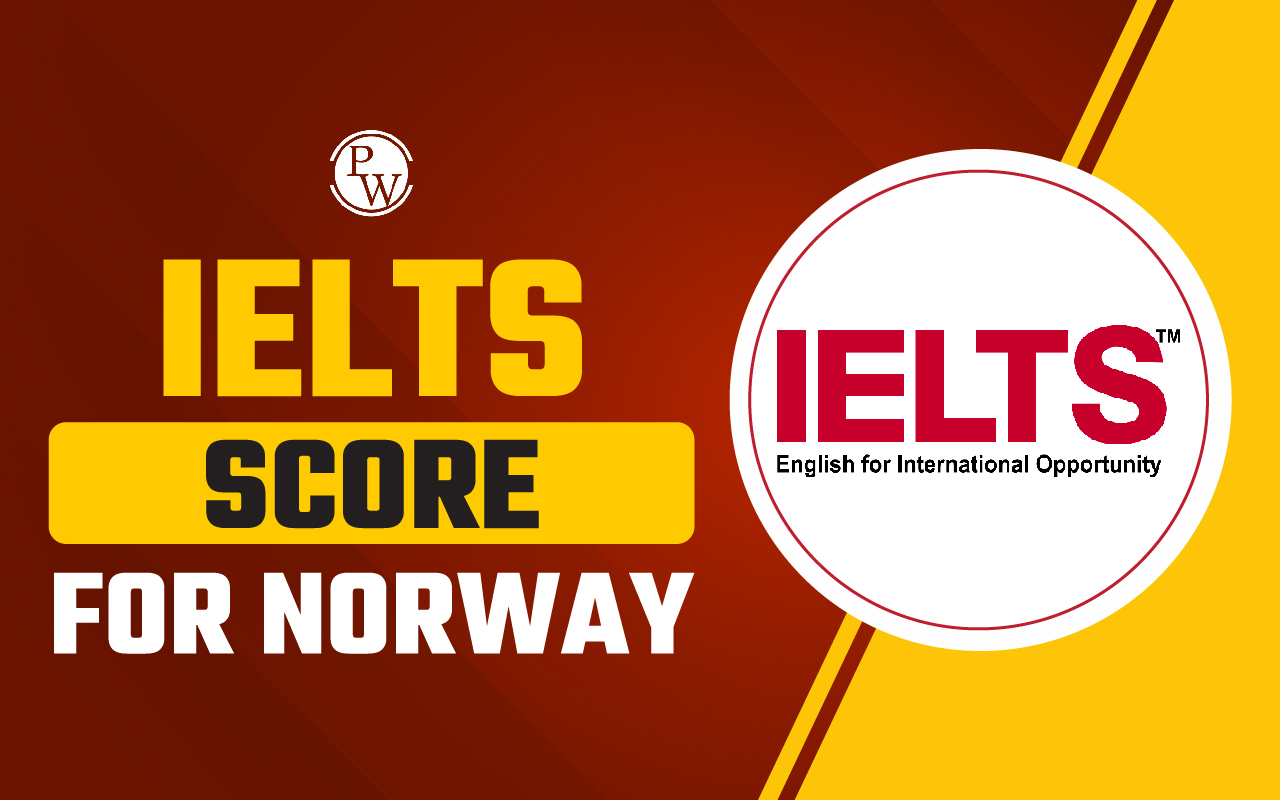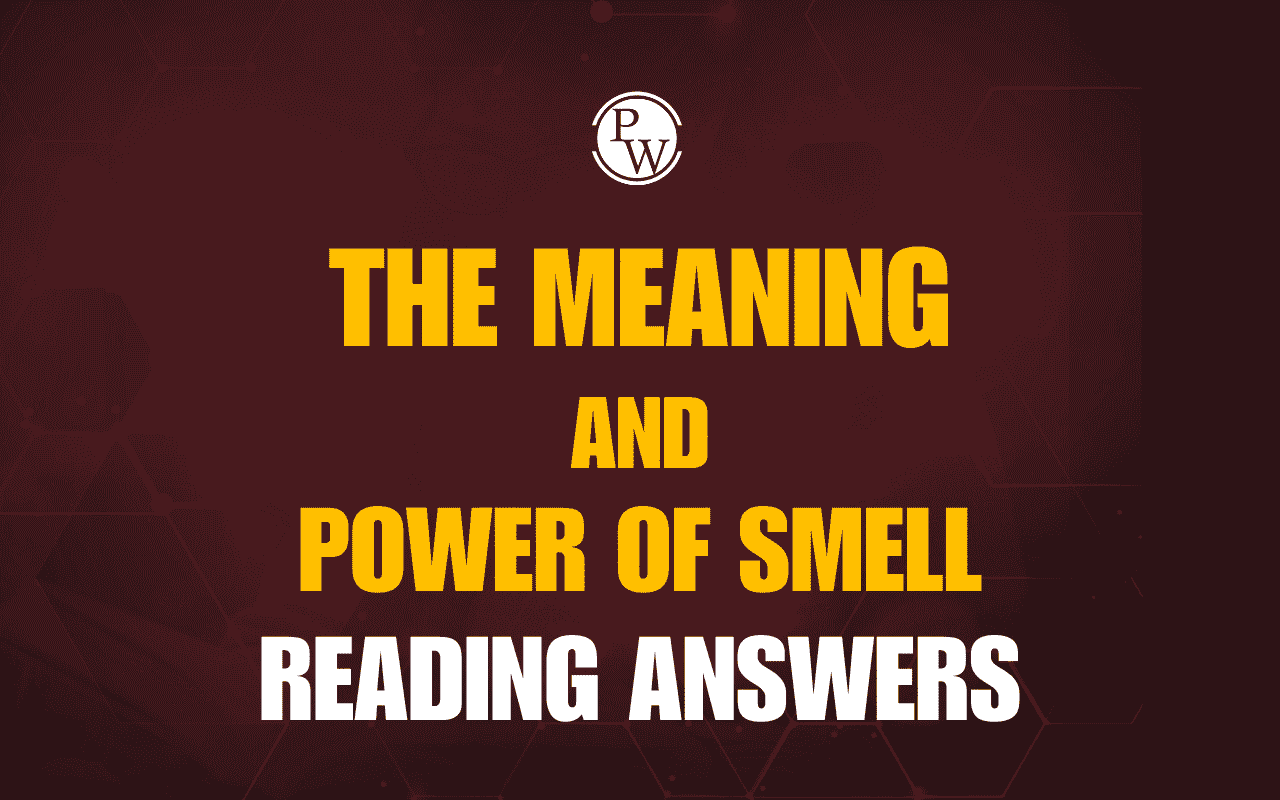
IELTS Score for Norway: Norway, renowned for its stunning landscapes, high standard of living, and robust educational system, is a top destination for international students. If you are planning to study in Norway, one of the key requirements for university admission is demonstrating your proficiency in English. This is where the IELTS score for Norway plays a crucial role. In this article, we will explore everything you need to know about the IELTS score for Norway, including requirements for different universities, visa considerations, and tips for achieving the best possible score.
Explore IELTS Exam Courses
Minimum IELTS Score for Admission to Norwegian Universities
The minimum IELTS score for Norway required for admission to Norwegian universities varies depending on the institution and program. Generally, universities expect scores between 6.0 and 7.0, with more competitive courses often requiring higher scores. In this section, we will outline the typical IELTS score requirements for admission to some of Norway's top universities.IELTS Score for Norway
The IELTS score requirements vary by university and program of study. However, most Norwegian institutions require a minimum IELTS band score ranging from 6.0 to 7.0 for undergraduate and postgraduate programs.| University | Minimum IELTS Score (Undergraduate) | Minimum IELTS Score (Postgraduate) |
|---|---|---|
| University of Oslo | 6.0 | 6.5 |
| Norwegian University of Science and Technology (NTNU) | 6.0 | 6.5 |
| University of Bergen | 6.0 | 6.5 |
| University of Tromsø | 6.0 | 6.5 |
| BI Norwegian Business School | 6.5 | 6.5 |
| Norwegian School of Economics (NHH) | 6.5 | 7.0 |
| IELTS Different Module Practice Tests | |
|---|---|
| Free IELTS Speaking Practice Tests | Free IELTS Writing Practice Tests |
| Free IELTS Listening Practice Tests | Free IELTS General Practice Tests |
Specific IELTS Score Requirements by Program
While the minimum IELTS score requirements may vary, certain programs may have higher score thresholds based on the level of difficulty and the language requirements of the course.- Undergraduate Programs : Most undergraduate programs in Norway require a minimum score of 6.0 to 6.5 . However, competitive programs, such as medicine, law, or engineering, may ask for a score closer to 7.0 .
- Postgraduate Programs : For postgraduate programs, a score of 6.5 to 7.0 is typically required. However, highly specialized master's programs, such as in business or economics, may require higher scores.
| IELTS Exam Important Links | |
|---|---|
| IELTS Reading Band Score | IELTS Listening Band Score |
| IELTS Speaking Band Score | IELTS Writing Band Score |
IELTS Band Requirements for Popular Norwegian Universities
Each Norwegian university has specific IELTS band score requirements based on the program and level of study. Generally, the IELTS Score for Norway ranges from 6.0 to 7.0. Here's a look at the IELTS score requirements for some of Norway's top universities.University of Oslo (UiO)
- Undergraduate Programs : A minimum IELTS band score of 6.0 .
- Postgraduate Programs : A minimum IELTS band score of 6.5 .
NTNU (Norwegian University of Science and Technology)
- Undergraduate Programs : A minimum IELTS band score of 6.0 .
- Postgraduate Programs : A minimum IELTS band score of 6.5 .
University of Bergen
- Undergraduate Programs : A minimum IELTS band score of 6.0 .
- Postgraduate Programs : A minimum IELTS band score of 6.5 .
BI Norwegian Business School
- Undergraduate Programs : A minimum IELTS band score of 6.5 .
- Postgraduate Programs : A minimum IELTS band score of 6.5 .
IELTS Score for Norway Student Visa
For international students applying for a student visa to Norway, the IELTS score is not an explicit requirement for the visa application. However, students must meet the language proficiency requirements set by the university or institution where they have been accepted. The Norwegian Directorate of Immigration (UDI) requires students to prove that they can support themselves financially during their studies and fulfill all university-specific entry requirements.| IELTS Important Links | |
|---|---|
| IELTS General Training | IELTS Academic Training |
Requirements for a Norwegian Student Visa
To study in Norway, international students must meet specific requirements for a student visa. While an IELTS score for Norway is not directly required for the visa application, students must fulfill language proficiency criteria set by their university and provide necessary documentation. Here’s an overview of the key requirements for obtaining a Norwegian student visa.- Proof of University Admission : Evidence of acceptance into a Norwegian institution with a valid IELTS score.
- Proof of Financial Support : Documentation that proves you have enough funds to support yourself during your stay in Norway. As of 2024, students must have at least NOK 128,887 per year (approximately USD 12,000).
- Health Insurance : Proof of comprehensive health insurance for the duration of your stay.
Why is IELTS Score for Norway is Important?
An IELTS score is essential for those planning to study, work, or immigrate to Norway, particularly for individuals from non-English-speaking countries. English is the primary medium of instruction in most Norwegian universities, and demonstrating language proficiency is a mandatory requirement for admission to academic programs. Beyond academia, many employers in Norway value strong English skills to ensure effective communication in the workplace. The IELTS score for Norway serves as a standardized assessment of these abilities, helping applicants meet the linguistic expectations of both educational institutions and professional environments in Norway.How to Manage Time in IELTS Reading
Benefits of Studying in Norway
Studying in Norway offers a unique and enriching experience, blending world-class education with breathtaking landscapes and a high quality of life. With its innovative research opportunities, diverse academic programs, and welcoming environment for international students, Norway stands out as an attractive destination for higher education. Here are some of the key benefits of studying in Norway:- High Quality of Education : Norway is home to some of the top universities in the world, with a focus on innovation, research, and student support.
- No Tuition Fees : Public universities in Norway offer tuition-free education for international students, making it an attractive option for those looking to study abroad.
- Work Opportunities : International students are allowed to work part-time during their studies, providing financial support and valuable work experience.
- Post-Graduation Work Visa : After completing their degree, international students can apply for a work visa to live and work in Norway.
How to Prepare for IELTS for Norway
Achieving a competitive IELTS Score for Norway requires preparation and strategy. Here are some tips for improving your IELTS score to meet Norwegian university requirements:- Understand the Test Format : Familiarize yourself with the test format, including the types of questions in each section (Listening, Reading, Writing, and Speaking).
- Practice Regularly : Consistent practice is key to improving your skills. Take IELTS practice tests to simulate exam conditions and identify areas for improvement.
- Take a Preparation Course : Many students benefit from enrolling in IELTS preparation courses, either in-person or online. These courses provide expert guidance and strategies to help you succeed.
- Improve Your English Skills : Focus on improving your English language skills in everyday situations, such as reading English books, watching English movies, and practicing speaking with native speakers.
- Time Management : During the test, manage your time wisely. Allocate enough time to each section and avoid spending too much time on difficult questions.
IELTS Scoring Explained
The IELTS score is reported as an overall band score, as well as individual scores for each of the four language skills. The overall band score is the average of the four section scores, rounded to the nearest half band.| Band Score | Proficiency Level |
|---|---|
| 9 | Expert user |
| 8 | Very good user |
| 7 | Good user |
| 6 | Competent user |
| 5 | Modest user |
| 4 | Limited user |
| 3 | Extremely limited user |
| 2 | Intermittent user |
| 1 | Non-user |
| 0 | Did not attempt the test |
Common IELTS Challenges and How to Overcome Them
The IELTS exam can present several challenges for test-takers, from managing time effectively to overcoming language barriers in speaking and listening. Understanding these common difficulties and knowing how to address them can greatly improve your chances of achieving a high score. In this section, we’ll explore some of the typical IELTS challenges and provide tips on how to overcome them.- Listening Difficulties : Many students find the Listening section challenging because of the variety of accents and the speed of speech. To improve, practice listening to English media (news, podcasts, movies) and focus on understanding different accents.
- Reading Speed : The Reading section often causes time management issues. Improve reading speed by practicing with timed tests and learning to skim and scan the text for key information.
- Writing Coherence : Writing tasks require clarity and coherence. Practice organizing your ideas into clear paragraphs, and ensure your argument or explanation flows logically.
- Speaking Fluency : Many students feel nervous during the Speaking section. To overcome this, practice speaking English daily with friends or tutors, and focus on answering questions naturally and confidently.
Also Check:
Guidance of PW IELTS
Online IELTS courses are available from Physics Wallah for any type of student. Teachers with many years of experience designed this course to assist candidates in getting ready for the IELTS exam. The Academic and General Training versions of the IELTS exam are the two available types. Different IELTS preparation courses are offered by Physics Wallah for both the Academic and General Training exams.IELTS Score for Norway FAQs
Q1. What is the minimum IELTS score required to study in Norway?
Ans. The minimum IELTS score for most Norwegian universities ranges from 6.0 to 7.0, depending on the program. Competitive programs may require higher scores, especially for postgraduate courses.
Q2. Do all Norwegian universities accept IELTS scores?
Ans. Yes, most universities in Norway accept IELTS as proof of English proficiency. However, it's always important to check individual university requirements, as some may also accept other English proficiency tests like TOEFL.
Q3. Can I study in Norway without an IELTS score?
Ans. In some cases, students who have completed their previous education in English or are from English-speaking countries may be exempt from submitting an IELTS score. Check with the specific university for exemption policies.
Q4. What is the IELTS band score requirement for popular universities in Norway?
Ans. University of Oslo: Minimum IELTS score of 6.0 for undergraduate and 6.5 for postgraduate programs.
NTNU (Norwegian University of Science and Technology): Minimum IELTS score of 6.0 for undergraduate and 6.5 for postgraduate programs.
University of Bergen: Minimum IELTS score of 6.0 for undergraduate and 6.5 for postgraduate programs.
Q5. Is the IELTS score for Norway the same for all programs?
Ans. No, the IELTS score requirements may vary depending on the program. More competitive fields like business, engineering, and medicine may require higher scores, typically around 6.5 to 7.0.
Talk to a counsellorHave doubts? Our support team will be happy to assist you!

Free Learning Resources
PW Books
Notes (Class 10-12)
PW Study Materials
Notes (Class 6-9)
Ncert Solutions
Govt Exams
Class 6th to 12th Online Courses
Govt Job Exams Courses
UPSC Coaching
Defence Exam Coaching
Gate Exam Coaching
Other Exams
Know about Physics Wallah
Physics Wallah is an Indian edtech platform that provides accessible & comprehensive learning experiences to students from Class 6th to postgraduate level. We also provide extensive NCERT solutions, sample paper, NEET, JEE Mains, BITSAT previous year papers & more such resources to students. Physics Wallah also caters to over 3.5 million registered students and over 78 lakh+ Youtube subscribers with 4.8 rating on its app.
We Stand Out because
We provide students with intensive courses with India’s qualified & experienced faculties & mentors. PW strives to make the learning experience comprehensive and accessible for students of all sections of society. We believe in empowering every single student who couldn't dream of a good career in engineering and medical field earlier.
Our Key Focus Areas
Physics Wallah's main focus is to make the learning experience as economical as possible for all students. With our affordable courses like Lakshya, Udaan and Arjuna and many others, we have been able to provide a platform for lakhs of aspirants. From providing Chemistry, Maths, Physics formula to giving e-books of eminent authors like RD Sharma, RS Aggarwal and Lakhmir Singh, PW focuses on every single student's need for preparation.
What Makes Us Different
Physics Wallah strives to develop a comprehensive pedagogical structure for students, where they get a state-of-the-art learning experience with study material and resources. Apart from catering students preparing for JEE Mains and NEET, PW also provides study material for each state board like Uttar Pradesh, Bihar, and others
Copyright © 2025 Physicswallah Limited All rights reserved.












